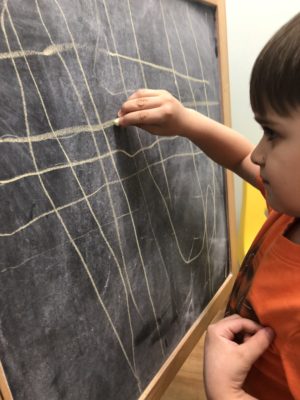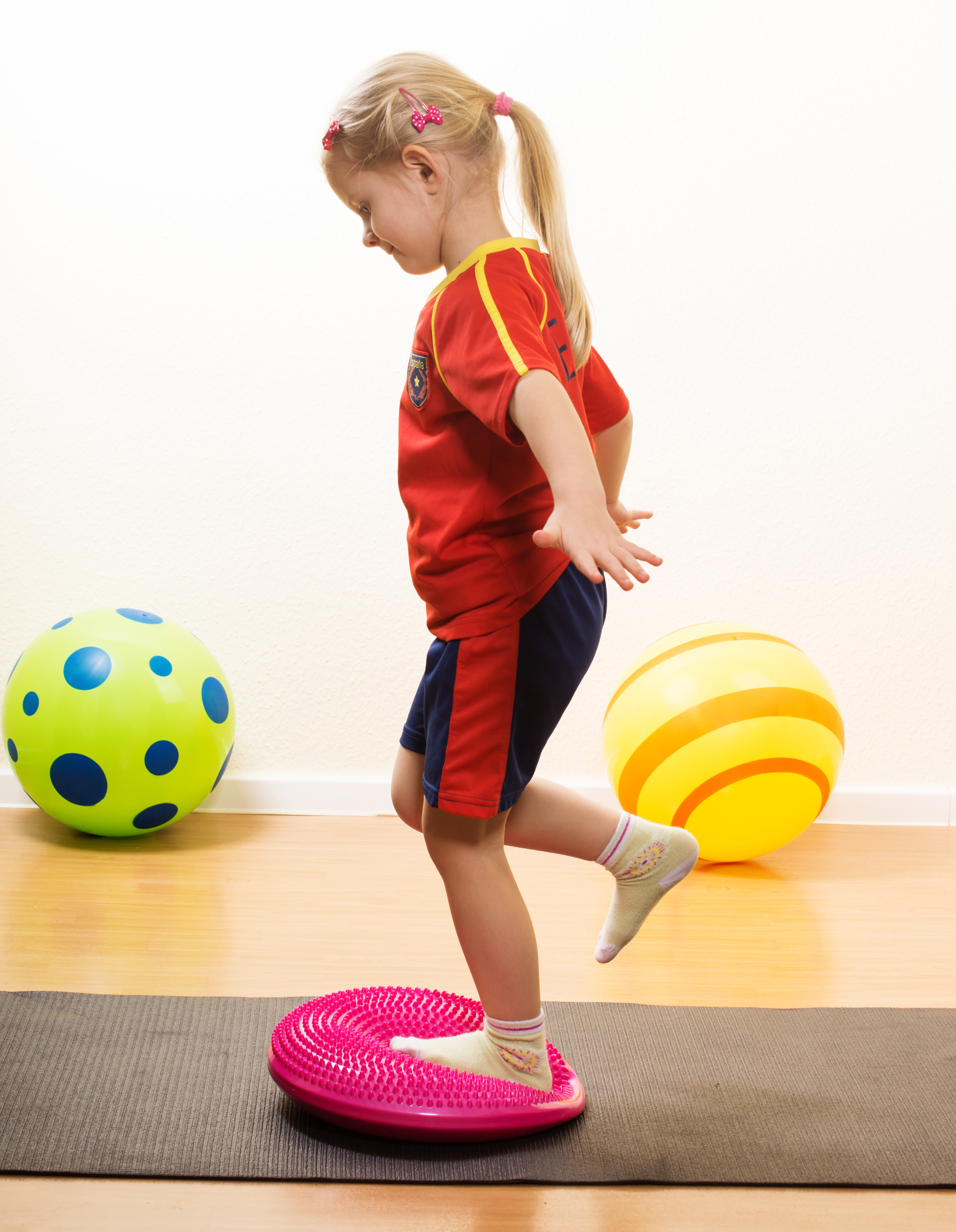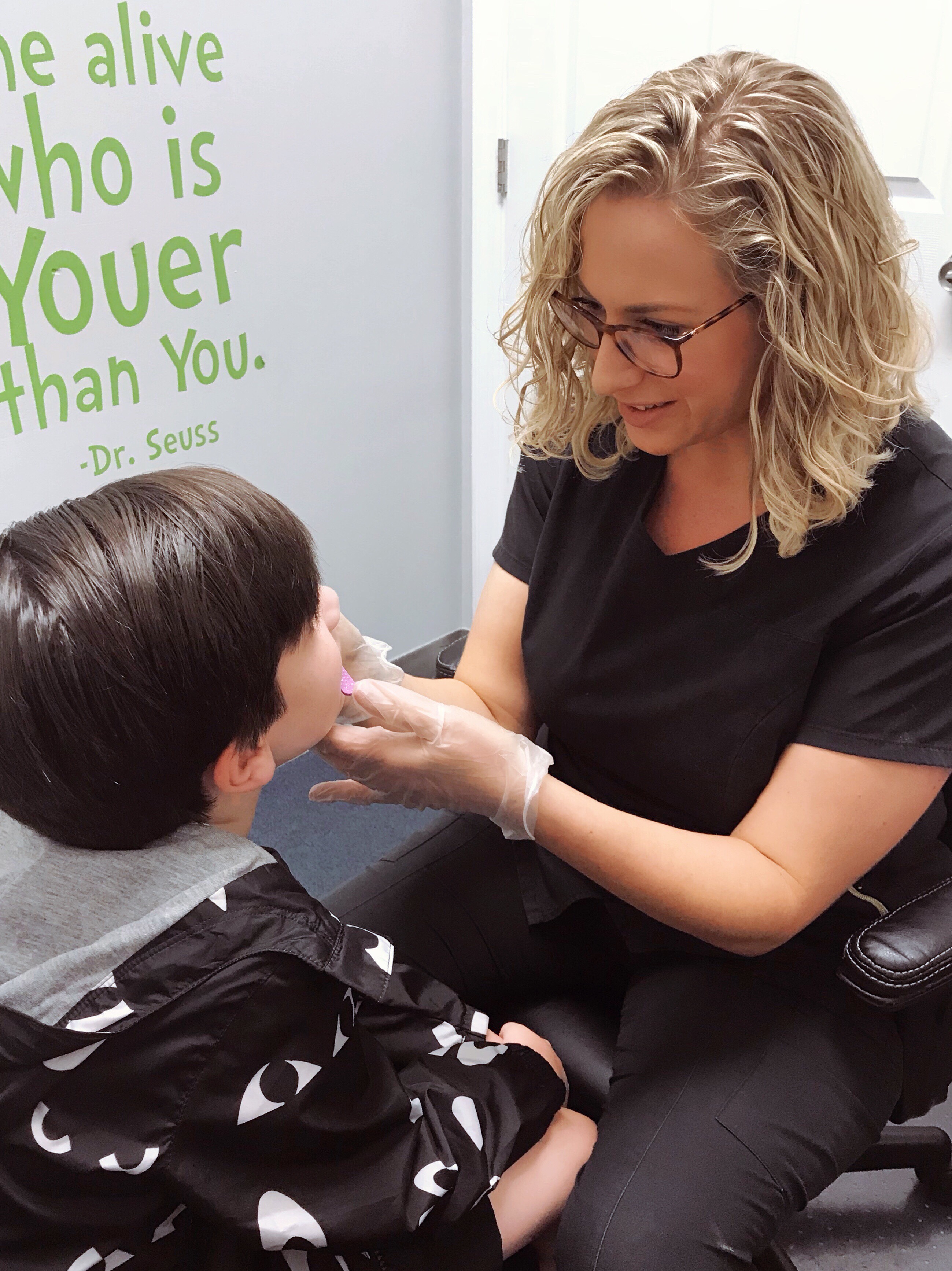Services
Pediatric Therapies

Our Occupational Therapy Program
The Astronaut training program is an evidenced-based treatment intervention used to treat children with sensory- vestibular- visual disorders and Autism. Our therapists are certified to administer the Astronaut Training program, which is a sound activated Vestibular-Visual protocol designed to enhance the dynamic interplay of moving, looking, listening, attention and communication. Therefore, improving sensory processing, regulation, and motor functions to improve your child’s ability to interact effectively with their peers and their environment.
Our Therapeutic Listening is an evidenced-based auditory intervention. Children wear special headphones that play special music that has been “filtered” or modified in order to expose the nervous system to low, medium and high pitch sounds. The music is specifically selected to target the child’s state of mind and target functional goals. It can improve self-regulation, attention to task, ability to tolerate transition, and visual-motor delays.
Our Vision therapy program helps individuals on the Autism Spectrum Disorder, and other related conditions such as ADHD, Developmental Delay, Learning Difficulties function to their best of their ability. Visual perception refers to the brain’s ability to make sense of what the eyes see. This is not the same as visual acuity which refers to how clearly a person sees (for example “20/20 vision”). A person can have 20/20 vision and still have problems with visual perceptual processing.
Visual Perceptual Motor Deficit affects the ability to understand the information gathered through visual means. These kinds of ocular defects can impair reading comprehension skills, lead to a short attention span, and negatively impact one’s ability to draw or copy information.
skills to improve reading, writing. There are seven “sub-areas under the term visual perception include vision discrimination, visual memory, visual-spatial relationships, visual form constancy, visual sequential memory, visual figure ground, and visual closure. Visual perceptual deficits cannot be correct with practice. Our program offers specific therapeutic activities to strengthen those visual deficits.
If your child is experiencing vision-related symptoms please contact our occupational therapy program for an evaluation. Our assessments include the Beery– Buktenica Developmental Test with two additional subtests of Visual Perception a non-motor test, and the Visual -Motor integration test. It is a standardized and culture free test visual.
Our program is Beckman’s Oral Motor feeding program, it is an evidence-based treatment. The program focuses on decreasing oral motor hypersensitivity to textures, texture progression, adaptive mealtime utensils, facilitating improved feeding skills and increasing the child’s repertoire of foods based on taste, texture, smell, and color characteristics.
These treatment strategies in conjunction with postural, respiratory, and multi-sensory activities are a foundation of our Autism program. They not only provide changes in children with Autism but also children with Cerebral Palsy, apraxia, anxiety, Attention-deficit/hyperactivity disorder, children with behavioral problems, and many other learning difficulties. These are effective treatments that enhance the neurological process of the developing brain. These interventions are a central part of our sensory integration practice.

Our Physical Therapy Program
We treat children who have Autism, suffered an injury, undergone surgery, have a congenital condition or developmental delays.
We provide physical therapy for kids with a variety of needs for children of age’s birth to adult hood.
- Neurologic and orthopedic disorders
- Sports injury management
- Gait disorders
- Movement disorders
- Infant torticollis /plagiocephaly
- Delayed gross motor development
- Posture deviations
- Equipment and seating needs
The Universal Exercise Unit (“Cage”) is a system of pulleys, straps, weights and bungees utilized to perform a variety of exercises with the ability isolate and target any muscle group.
Benefits:
Strength
Range of motion
Flexibility
Functional activities
Dynamic support system
Quality of gait
Balance

Our Speech Therapy Program
- Receptive Language: the ability to listen and understand speech. This includes understanding sentences, following directions, understanding a story, and understanding basic concepts.
- Expressive Language: the ability to verbally express our thoughts and ideas. It includes sentence production, grammar, the content of the message, and vocabulary.
- Pragmatics (Social Skills): The social language skills we use in our daily social interactions. This includes what we say, how we say it, how we play and our body language.
- Cognitive Skills: refers to the ability to attend to tasks, use our memory, organize information, solve problems and use reasoning skills
- Articulation: refers to the way we produce speech sounds. We use all of our articulators to produce speech sounds in order to produce meaningful words. We treat the production of specific speech sounds and/or speech pattern errors.
- Oral Motor Skills: the skills to carry out specific movements and functions of the lips, tongue, cheeks, and other various supporting muscles of the oral area.
- Apraxia: deficits in the pronunciation of sounds, syllables, and words due to difficulties with motor planning, not muscle weakness.
- Fluency: refers to the smoothness with which sounds, words, and phrases are put together verbally. Fluent speech should be void of hesitations, extraneous pauses, or repetitions. Dysfluency is commonly known as “stuttering”. Stuttering is a disturbance in the normal flow of speech.
- Voice Disorders: the ability to sustain a normal voice quality and resonance. Some people experience hoarseness, wet vocal quality, nasality, high and/or low pitch.
- Feeding: refers to children who have trouble eating/drinking during meals due to sensory deficits, decreased strength and oral motor weakness, and/or behavioral difficulties.
- Swallowing Disorders (Dysphagia): refers to the ability to suck, chew, adequately manage food, and direct it into the esophagus. We provide treatment to strengthen the oral and laryngeal mechanisms.
Music classes coming soon!
Contact us for dates and additional information
Parent Training
At Advance Therapy Works, our philosophy is to create a customized therapy program for each child and to empower parents and family through extensive education regarding diagnosis, prognosis, and treatment.
During the evaluation process, our parents collaborate with the therapist in the creation of their child’s goals. We continue to integrate the family and caregivers during the treatment sessions by providing on-going training and feedback. The family and caregivers are also provided with a home exercise program so they can be equipped with the tools necessary to help their child reach their highest level of function.

bring the completed forms to your appointment
